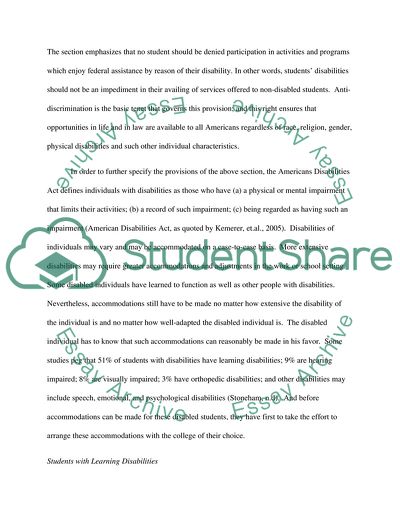Cite this document
(Challenges Faced by Students with Disabilities in College Research Paper, n.d.)
Challenges Faced by Students with Disabilities in College Research Paper. Retrieved from https://studentshare.org/sociology/1725333-students-with-disabilities-in-college
Challenges Faced by Students with Disabilities in College Research Paper. Retrieved from https://studentshare.org/sociology/1725333-students-with-disabilities-in-college
(Challenges Faced by Students With Disabilities in College Research Paper)
Challenges Faced by Students With Disabilities in College Research Paper. https://studentshare.org/sociology/1725333-students-with-disabilities-in-college.
Challenges Faced by Students With Disabilities in College Research Paper. https://studentshare.org/sociology/1725333-students-with-disabilities-in-college.
“Challenges Faced by Students With Disabilities in College Research Paper”, n.d. https://studentshare.org/sociology/1725333-students-with-disabilities-in-college.


